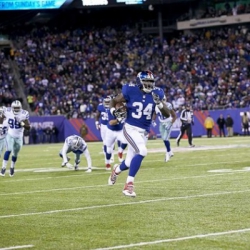New Jersey’s Governor Chris Christie may have vetoed a bill that would have challenged US federal gaming laws, but he has not given up hope that he can legalize sports gambling in the state. According to ESPN, Christie and his advisors continue to search for legal ways they can establish sports betting in the state.
New Jersey has fought for over two years for the right to legalize gambling. In 2012, New Jersey lawmakers passed a bill that would have given Atlantic City casinos and NJ racetracks the right to offer sports bets to customers. The NFL, NBA, NHL, MLB, and NCAA filed a joint lawsuit to challenge New Jersey’s right to license such gaming, claiming the expansion would harm their leagues.
Two-Year Legal Battle
The lawsuit led to a two-year legal battle. Eventually, the Third Circuit court reached a majority decisions in favor of the sports leagues. Chris Christie appealed the decision to the U.S. Supreme Court, but the court decided earlier this summer not to listen to the case.
Unable to gain judicial approval to challenge the 1992 federal ban on sports gambling, New Jersey’s legislature passed another law. Because the law would have challenged the 1992 sports betting act directly, Chris Christie vetoed the bill. With a presidential run on the horizon, Christie decided open defiance of the federal government was bad politics–and bad constitutional law.
State Lawyers Continue to Seek a Loophole
The veto of Senate Bill No. 2250 appeared to end the debate, but it hasn’t. At the time of the veto, Christie released a statement which said he was “open to exploring legally sound ways to let the State’s casinos and racetracks offer sports wagering.”
New Jersey State Sen. Jennifer Beck says the governor’s people have informed lawmakers they believe their is another way to challenge federal law. Beck told reporters, “[Governor Christie’s counsel] have suggested that the language in the bill repealed sections of our gaming regulations and statutes that went beyond what they thought was appropriate and necessary. They also suggested that they think there is another way at this that is likely to be more successful in court.”
September 10 Meeting to Lay Out Legal Plan
Governor Christie has a meeting scheduled with the state’s top legislators on September 10. The speculation is he will provide information at that meeting on how his administration will continue to pursue the sports gambling angle. The success of their efforts might be the last, best hope for Atlantic City to turn around its fortunes.
Sports Gambling Might Save Atlantic City
Atlantic City is in the midst of an 8-year downturn in its fortunes. In 2014, four of the twelve casinos in Atlantic City have closed. With an onrush of competition springing up in nearby states these past 10 years, Atlantic City has seen its revenues decline from $5.4 billion to $2.86 billion over that span.
To gain an edge, New Jersey lawmakers have sought ways to distinguish the state’s gaming operations from nearby competitors. One way to do that was online gambling, but the online casinos and card rooms which launched in November 2013 have been disappointing. Though they bring in millions of dollars in revenue, it was expected they would bring in four to five times the windfall.
Sports gambling is the best chance for Atlantic City to get an edge over casinos in Pennsylvania and New York, and to compete with the sportsbooks of Delaware. Delaware is one of four states which has a federal exemption for sports betting. New Jersey sees no reason why those states (Delaware, Nevada, Montana, Oregon) should be given special privileges, while other states are banned from the same activities. On those grounds, they seek to challenge the federal ban on sports gambling (in the other 46 states).
Ray Lesniak May Attempt to Override Veto
If Chris Christie and his legal advisors don’t come up with a clever way to challenge federal law, the governor may face an attempt to override his veto. While such vetoes are race–Christie has had no vetoes overridden–they do happen. According to Ray Lesniak, a leading politician on the issue, this might be a case where overriding a veto would make sense.
Lesniak, a Democrat from Elizabeth, says that the public mood calls for action. Lesniak told ESPN, “This is different, though. because the voters have spoken. Sixty-eight percent of voters supported sports betting. Normally, you don’t get that in legislation that has been vetoed. My chances aren’t all that bad.”
To override Christie’s veto, the Senate and the State Assembly each would need a two-thirds vote on the bill. Lesniak is planning a vote in the State Senate shortly after 1pm on September 22. If the bill passes in the senate, then it would be put up for vote in the General Assembly.
Senate Bill 2250 Complies with Third Circuit Ruling
Dennis Drazin, an attorney who advises the New Jersey Thoroughbred Horseman, believes the legislature is on firm legal ground. Though the governor claimed he did not want to defy the central government due to his pledge to follow the law, his opponents on this issue have a much different view on whether Senate Bill 2250 would defy federal authority.
Mr. Drazin, who has been involved with the state’s litigation with the sports leagues every step of the way, said, “There were several editions [of the bill] that were vetted by all the attorneys who were involved in the litigation as well as counsel for the Senate, Assembly and the attorney general’s office. We have no question in our minds that the bill that was passed would have been legal and not violated PASPA. It’s word-for-word with what the Third Circuit said we could do and word-for-word with what the federal government said we could do in every argument they made, including the Solicitor General’s opposition for the position to cert.”

